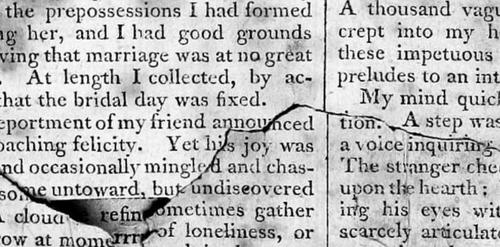Enlightened Medialities (2020–)
"Enlightened Medialities" investigates communicative technologies and techniques during the age of Enlightenment in the Greek "republic of letters" (the Ottoman Empire and the Western European Greek diaspora), Spain and its (former) colonies, and the newly founded United States at the time of the French and Haitian Revolutions. The project focuses on Enlightenment theories and practices of disinterested deliberation, on the one hand, and the Enlightenment rhetoric of friendship and empathy, on the other, analysing them as two versions of one and the same desire for non-normative norms. The Enlightenment’s fascination with "the strangely non-coercive force of the better argument" (J. Habermas) – disavowing competitive mediation while enacting it – represents a central element of Western discourses of domination and emancipation alike. It also serves as a foundational figure for prevailing fictions of' ‘centre/periphery.' Therefore, our central question revolves around the tension between forces of community-building and forces of critique in Enlightened print culture, asking whether competing media practices of writing/reading have produced counter-discourses to the Western desire for non-coercive modes of coercion or even new types of mediated competition in global(ising) networks of literary production.
Lines of investigation
Lead: Frank Kelleter
Civic Indignation investigates a key feature of the literature of the American Revolution and early republic: its rhetorical vacillation between sentimentality and indignation. The project asks: What does it mean when colonial elites speak in assumed roles of wounded humanity, in a language of universal protest that is at the same time a language of civic self-sentimentalization? Reconstructing the emotional performances and language games of enlightened revolutionaries, Civic Indignation argues that the historical meaning of 18th-century (proto-)liberalism resides not only in its political philosophy, but also in its media rhetoric.
The book project pursues this issue in two parts with altogether three chapters. Part I (“Infrastructural America and the Media of Public Impersonation”) consists of one chapter which clarifies the media-historical foundations of the rhetoric of civic indignation in the 18th century. Part II (“Empathies and Resentments”) consists of two chapters which analyze the rhetorical shift from liberal civility to its opposites (scorn, contempt, invective, revenge fantasies, etc.) in revolutionary pamphlets, semi-public letter exchanges, republican documents, and self-reflexive literary works.
Chapter 1 (“Enlightened Medialities of the Early Republic”) argues that the founding of the United States was animated by enlightened theories of infrastructure and media. The chapter confronts these theories of national infrastructure with the actual media practices of the acrimonious newspaper debates of the 1790s, arguing for a performative understanding of “public” communication in the new nation.
Chapter 2 (“Lists of Grievances”) explores the relationship between public role play and a militant rhetoric of human liberty in revolutionary pamphlets and in Judith Sargent Murray’s serialized, multi-modal drag performance The Gleaner (1792-98). Building on these readings, the chapter reconstructs the publication strategies with which non-elite (especially nonwhite) authors navigated the infrastructural constraints of a liberal – or “forcelessly forceful” – public sphere.
Chapter 3 (“Self-Sentimentalization in a Nation of Strangers”) discusses white-liberal imaginations of Blackness and Indigeneity in post-revolutionary epistolary exchanges (Jefferson, Banneker, Grégoire), early Romantic poetry, and in sentimental, Gothic, and historical novels between the 1790s and the 1820s.
Participants
- Prof. Dr. Frank Kelleter (project lead)
- Nathalie Rennhack
- Richard Palomar Vidal
- Elena Patrika (former doctoral candidate)
- Prof. Dr. Miltos Pechlivanos (project lead)
- Prof. Dr. Anita Traninger (project lead)


